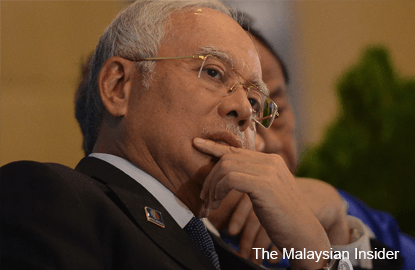
KUALA LUMPUR: Currently under investigation for the controversies surrounding 1Malaysia Development Bhd, Prime Minister Datuk Seri Najib Razak’s office has been hit with yet another corruption accusation, this time by the Australians, involving contracts to print polymer banknotes.
The Sydney Morning Herald (SMH) reported that Canberra’s requests for information from Putrajaya regarding improper dealings involving two Australian Reserve Bank firms over the contracts, had gone unheeded.
Quoting sources, the daily said senior officials in the Australian government were aware of intelligence that implicates people in the offices of both Najib and his predecessor Tun Abdullah Ahmad Badawi in the corruption case.
Malaysia, the report said, had paid no attention to the “formal mutual assistance” request from the Commonwealth Attorney-General’s Department to provide information, which has been described as “sensitive”, about the financial dealings of a group of middlemen.
The case has triggered the prosecution of several Australian businessmen who worked for Securency and Note Printing Australia, the SMH said.
It said Malaysian officials were allegedly bribed by the two companies to win contracts to turn ringgit from paper notes to polymer between the late 1990s and 2009.
Some of the corrupt middlemen were apparently close to those in Najib and Abdullah’s offices, the report added.
The SMH said that Najib’s representative dismissed the claims and had threatened legal action.
Besides that, WikiLeaks has also been accused of publishing a suppression order by the Victoria’s Supreme Court that had named Najib. The anti-secrecy group was reported to be under probe for the breach.
The order had prevented the publication of any information that “reveals, implies, suggests or alleges” that Najib ever “received or attempted to receive a bribe or improper payment”, as well as the naming of Abdullah and other politicians from Indonesia and Vietnam, so as to not “unfairly” implicate the leaders and protect Australia’s international relations and national security.
But earlier yesterday, the Victoria’s Supreme Court quashed the gag order which Australia’s Department of Foreign Affairs and Trade obtained last year.
The SMH reported that the court had noted that although Najib and Abdullah were not the ones who were alleged to have received the bribes, the offices of both leaders had been implicated in the corrupt dealings.
It was previously reported that a former politician in November 2007 told the Reserve Bank of Australia that he had managed to convince the then prime minister (Abdullah) to adopt the polymer banknote technology.
The bribery allegations first surfaced in 2009, which prompted the Australian Federal Police and Malaysian Anti-Corruption Commission (MACC) to begin separate probes.
In 2010, the MACC detained three individuals linked to the supply of RM5 polymer notes, following a report that Securency had offered bribes to Malaysian officials.
All three, including a businessman, were charged with accepting RM11.3 million to secure the contract from Bank Negara Malaysia and to ensure that the government opted for the polymer notes.
Abdullah in 2011 denied allegations that the two Australian firms attempted to bribe him for a RM100 million currency contract during his tenure. — The Malaysian Insider
This article first appeared in The Edge Financial Daily, on July 15, 2015.